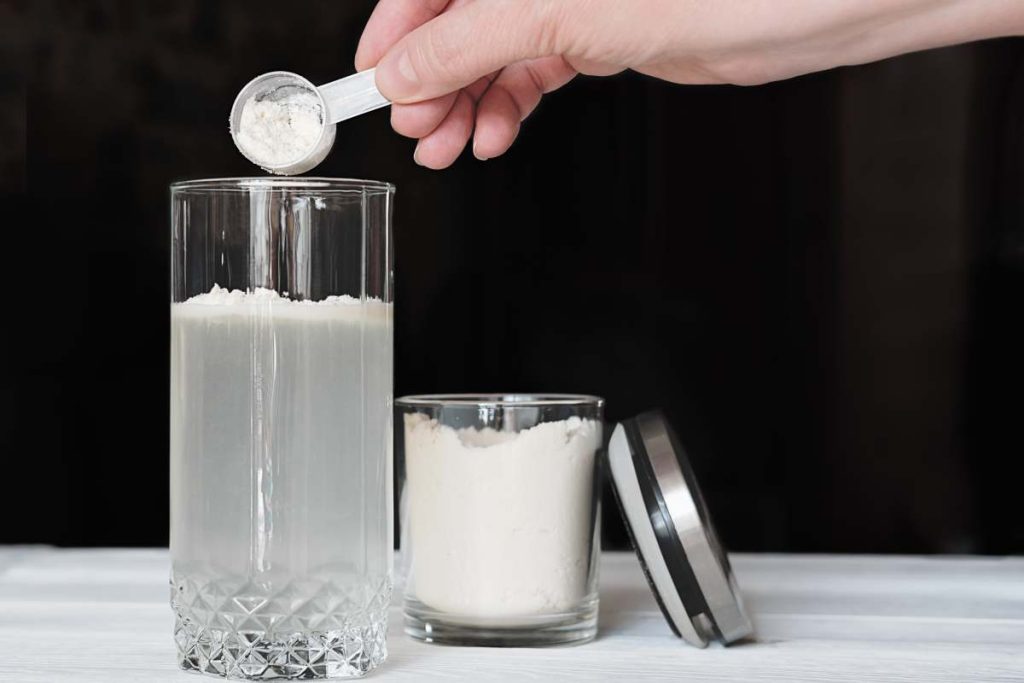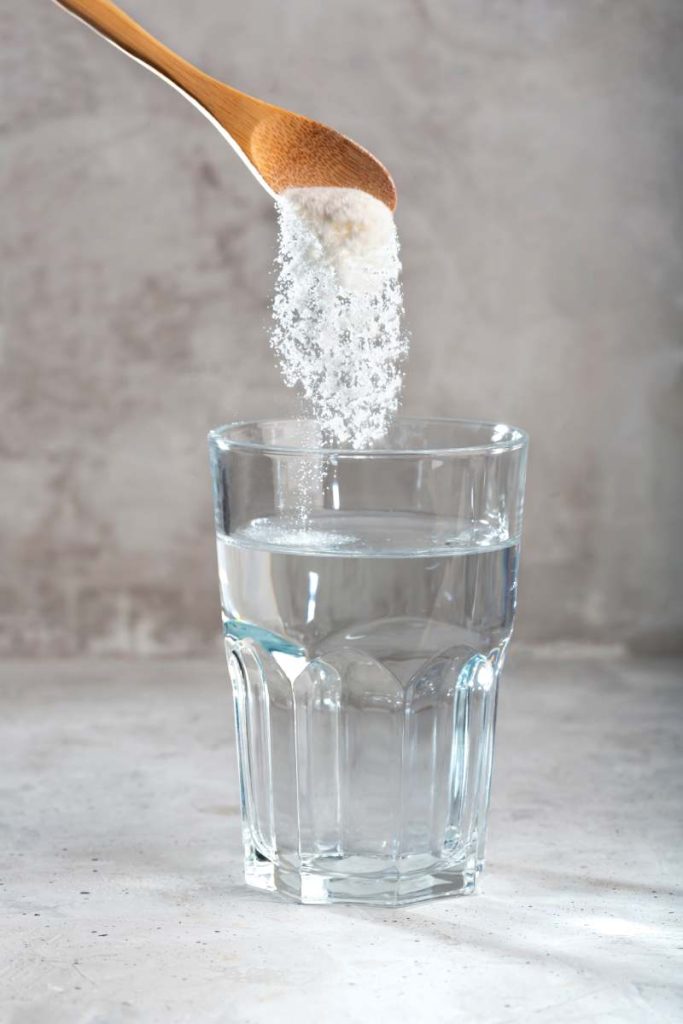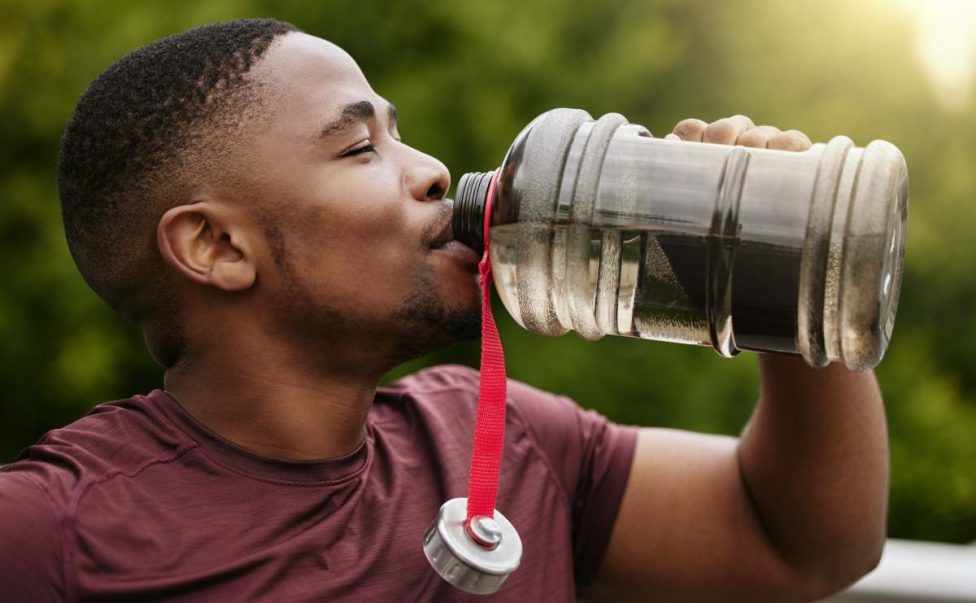Does adding salt to water help with hydration? Who needs extra salt to stay hydrated? What would happen if I drank too much salt water?
During hot summer days, staying hydrated is crucial. Drinking water and eating hydrating foods can help maintain hydration levels. Recently, some influencers on social media have been adding salt to their water, suggesting it helps them feel less thirsty and more hydrated by replacing electrolytes.
But does this practice actually work, and should everyone follow suit during a heat wave? Here’s what you need to understand before jumping on this trend.
Does adding salt to water help with hydration?
Adding salt to water can be a topic of curiosity when it comes to hydration. While many of us know that drinking water is essential for staying hydrated, there’s a belief that adding salt to water might enhance hydration benefits, especially in certain situations like sports or intense physical activity. Let’s explore whether this is true and how it works.
Understanding Hydration
Hydration refers to the process of keeping our bodies adequately watered. Water is crucial for various bodily functions, including regulating body temperature, transporting nutrients, and maintaining overall health. When we lose water through activities like sweating or urination, it’s important to replenish it to avoid dehydration.
The Role of Salt
Salt, or sodium chloride, plays a significant role in our body’s hydration balance. It’s an electrolyte, which means it helps regulate the balance of fluids within and outside our cells. Electrolytes are essential for nerve and muscle function, including the regulation of water balance.

Salt and Water Absorption
When we consume salt, it helps our bodies retain water more effectively. This is due to a process called osmosis, where water moves across cell membranes to balance the concentration of salt both inside and outside cells. In simpler terms, salt helps water get absorbed and retained in the body instead of being quickly excreted.
Sports Drinks and Hydration
In sports and intense physical activities, electrolytes including sodium are lost through sweat. This is why sports drinks often contain electrolytes along with carbohydrates and fluids to help athletes stay hydrated and maintain energy levels. The presence of salt (sodium) in these drinks aids in fluid retention, helping athletes perform better and recover faster.
Adding Salt to Water
Now, considering adding salt directly to water: proponents suggest that it helps the body retain water better than plain water alone. This can be particularly relevant in situations where you might be losing a lot of fluids quickly, such as during prolonged exercise or in hot weather.
Practical Considerations
- Concentration: It’s important not to add too much salt to water. A small amount is usually sufficient to aid hydration without causing health issues.
- Taste: Salted water may have a different taste compared to plain water, which some people may find more palatable, especially after strenuous activity.
- Individual Variations: Everyone’s hydration needs are different. Factors like age, fitness level, and environment can influence how much water and electrolytes each person requires.
While adding salt to water can help with hydration by aiding in fluid retention and replenishing electrolytes, it’s essential to do so in moderation and consider individual needs. For most people engaging in regular daily activities, plain water is typically sufficient to stay hydrated. However, during intense exercise or in hot conditions, electrolyte-rich beverages or salted water may provide additional benefits.
In essence, the role of salt in hydration is about maintaining a balance. Too little can lead to electrolyte imbalances and dehydration, while too much can cause health issues. Understanding your body’s needs and responding appropriately to fluid loss is key to staying properly hydrated in various situations.

Who needs extra salt to stay hydrated?
Extra salt to stay hydrated is typically needed by individuals who engage in activities that cause significant fluid and electrolyte loss. Here are some groups of people who might benefit from additional salt to maintain hydration:
1. Athletes and Endurance Exercisers
During prolonged exercise like CrossFit, especially in hot or humid conditions, athletes lose significant amounts of electrolytes through sweat. Sodium, in particular, is a crucial electrolyte lost in sweat. Replacing these electrolytes helps maintain fluid balance and supports optimal muscle function and performance. Sports drinks or salted water can be beneficial in these situations to replenish sodium and other electrolytes lost during exercise.
2. Workers in Hot Environments
People working in occupations where they are exposed to high temperatures and humidity, such as construction workers, firefighters, or agricultural workers, can also benefit from extra salt to stay hydrated. Similar to athletes, these individuals lose electrolytes through sweat and need to replenish them to prevent dehydration and maintain their ability to work safely and effectively.
3. Individuals with Certain Medical Conditions
Some medical conditions or situations increase the body’s need for salt to maintain hydration:
- Diarrhea and Vomiting: These conditions can lead to significant fluid and electrolyte loss. Replenishing electrolytes, including sodium, is crucial to prevent dehydration.
- Fever: During illnesses accompanied by fever, increased sweating can lead to electrolyte depletion. Ensuring adequate salt intake helps in maintaining hydration and supporting recovery.
- Certain Medications: Some medications, such as diuretics (water pills), can increase urinary output and lead to electrolyte imbalances. In such cases, healthcare providers may recommend adjusting salt intake to maintain electrolyte balance.
4. Older Adults
As people age, their sense of thirst may diminish, making them less likely to drink enough water. Older adults may also have medical conditions or take medications that increase the risk of dehydration. Adequate salt intake can help stimulate thirst and support hydration in this population, although it’s essential to balance this with individual health considerations.
5. Individuals on Low-Sodium Diets
While most people should consume salt in moderation, individuals on very low-sodium diets (often prescribed for conditions like hypertension) may inadvertently reduce their electrolyte intake to levels that can impact hydration. In such cases, carefully managed salt intake, under medical supervision, can help maintain a healthy balance.
Practical Considerations
- Balance and Moderation: It’s crucial to emphasize that while some people need extra salt to stay hydrated, excessive salt intake can lead to health problems such as high blood pressure. Balancing salt intake according to individual needs and medical advice is essential.
- Hydration Assessment: Monitoring urine colour and frequency, thirst levels, and overall well-being can help determine if additional salt or electrolytes are needed for hydration.
While most individuals can maintain hydration through a balanced diet and adequate water intake, certain groups, including athletes, workers in hot environments, and individuals with specific medical conditions, may require extra salt to replenish electrolytes lost through sweat or other means.
What would happen if I drank too much salt water?
Drinking too much salt water can have several negative effects on your body due to the high sodium content. Here are some potential consequences:
1. Dehydration

Contrary to its intended purpose, consuming excessively salty water can actually lead to dehydration. This happens because your kidneys attempt to dilute the excess salt by excreting more water through urine. As a result, instead of hydrating you, the salt water can cause a net loss of fluids from your body.
2. Electrolyte Imbalance
Saltwater contains a high concentration of sodium chloride (salt). Consuming too much salt can disrupt the delicate balance of electrolytes in your body, particularly sodium and potassium. Electrolytes are essential for various bodily functions, including nerve and muscle function, and maintaining fluid balance. An imbalance can lead to symptoms such as muscle cramps, weakness, confusion, and in severe cases, heart palpitations or even cardiac arrest.
3. Increased Thirst
Drinking salty water can make you more thirsty. This is because the body needs to dilute the excess salt by pulling water from other cells in the body, including those in the mouth and throat. This increased thirst sensation may lead to drinking even more water, exacerbating the electrolyte imbalance.
4. Gastrointestinal Distress
Consuming highly concentrated salt water can irritate the lining of the stomach and intestines, leading to nausea, vomiting, abdominal pain, and diarrhoea. This is the body’s natural response to rid itself of the excess salt and restore balance.
5. Kidney Strain
Your kidneys play a crucial role in filtering out excess sodium from the bloodstream. Drinking too much salt water can put a strain on your kidneys as they work harder to excrete the excess salt. Over time, this strain can potentially contribute to kidney damage or exacerbate existing kidney conditions.
6. High Blood Pressure
Excess sodium intake, such as from drinking too much salt water, can lead to an increase in blood pressure. High blood pressure (hypertension) is a significant risk factor for heart disease, stroke, and other cardiovascular problems.
What to Do if You’ve Consumed Too Much Salt Water:
If you’ve inadvertently consumed a significant amount of salty water and experience symptoms such as extreme thirst, nausea, vomiting, or confusion, it’s important to take action:
- Stop Drinking Salt Water: Switch to drinking plain water to help dilute the excess salt and restore hydration.
- Rest and Monitor Symptoms: Rest in a cool environment and monitor how you feel. If symptoms persist or worsen, seek medical attention promptly.
- Rehydrate with Electrolytes: If you’re experiencing dehydration symptoms, consider rehydrating with electrolyte solutions or drinks designed to replenish fluids and electrolytes lost.
Substitute for saltwater
If you find adding even a little salt to your water or sports drink unappealing and worry it might deter you from staying hydrated, there are alternative ways to replenish sodium without relying solely on salt.
For instance, incorporating coconut water into your routine can be beneficial because it naturally contains sodium and potassium. These minerals support muscle function and fluid balance. To mask any salty taste we recommend adding a splash of pineapple juice. Additionally, there are electrolyte powders available commercially that you mix with water for rehydration. These products not only provide sodium but often come in flavoured varieties.
As with any aspect of fitness and training, experimenting with different options is key to finding what works best for you and enhances your performance. You might also consider keeping a few packets of salt from takeout meals in your gym bag for convenience when needed.


